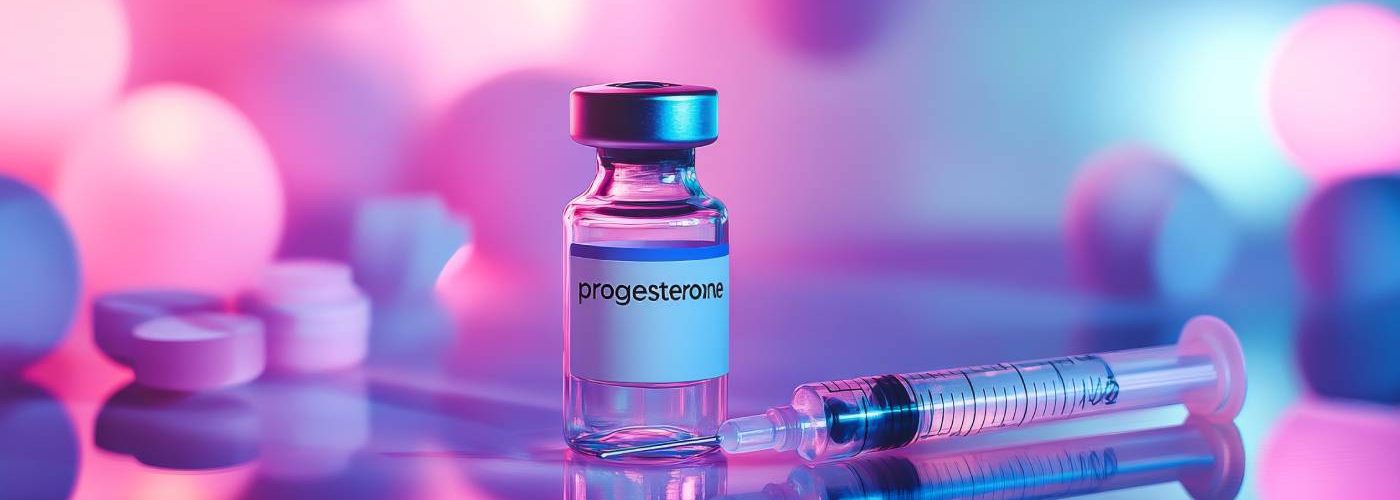
Progesterone is a vital hormone in the female reproductive process. It plays a crucial role in preparing the uterus for embryo implantation and early pregnancy maintenance. In the field of Assisted Reproduction, its administration becomes an essential component to enhance the success of treatments, especially during the luteal phase.
How does progesterone help in IVF?
Progesterone is a fundamental hormone in female reproduction. It is particularly significant in the preparation of the endometrium, the lining of the uterus where the embryo will implant. The administration of progesterone in assisted reproduction treatments is specifically focused on supporting the luteal phase, which occurs between ovulation and embryo implantation.
During this stage, progesterone levels are monitored to ensure they are sufficiently high, creating an optimal environment for implantation and successful early pregnancy development. In the context of assisted reproduction treatments, the most appropriate time for progesterone administration is typically after oocyte retrieval. However, in natural cycles, progesterone is usually administered after ovulation has occurred.
What are progesterone shots?
Progesterone shots are a method of administering this key hormone in the female reproductive process. Progesterone promotes pregnancy by preparing the endometrium for embryo implantation. In assisted reproduction treatments, they are used as support during the luteal phase to ensure adequate levels during crucial moments such as embryo transfer and implantation.
Types of progesterone
Progesterone types differ based on the method of administration and can be divided into three types:
- Vaginal: involving progesterone suppositories. This is the most common administration method due to its rapid absorption.
- Oral medication
- Injections, as explained earlier
How long do you take progesterone shots after IVF transfer?
The duration of progesterone shots after IVF transfer varies. However, it is generally administered as support for the luteal phase, the period between ovulation and potential embryo implantation. The specific duration will be determined by the treating physician.
When should you stop taking progesterone after IVF?
The decision to stop taking progesterone after IVF also depends on the guidance of the physician and the individual progress of the treatment. Generally, it is discontinued after a specified period to allow the pregnancy to progress naturally.
When to stop taking progesterone during pregnancy?
In many cases, it has been recommended to continue progesterone treatment until approximately week 12 of pregnancy. However, once again, it will be the specialist who assesses, in each case, whether this protocol is appropriate and beneficial.
Miscarriage after stopping progesterone IVF
Discontinuing progesterone after In Vitro Fertilization may increase the risk of miscarriage, as progesterone plays a crucial role in maintaining a conducive environment for early pregnancy development.
What happens if you do not take progesterone after IVF?
Not taking progesterone after IVF can compromise the viability of the pregnancy. Progesterone is essential for preparing the endometrium and maintaining suitable conditions for implantation and early embryonic development. The lack of progesterone could increase the risk of treatment failure or spontaneous abortion.
Learning more about a hormone as important to the success of assisted reproduction treatments as progesterone can be beneficial for women undergoing this process. However, it is crucial to remember that this is general information, and it is advisable to consult with the specialist who is overseeing your treatment. If you aspire to become a mother but have not started yet, IVI can assist you. We are leaders in reproductive medicine worldwide. Complete the form below this text with your contact information, and our team will get in touch with you.





Comments are closed here.